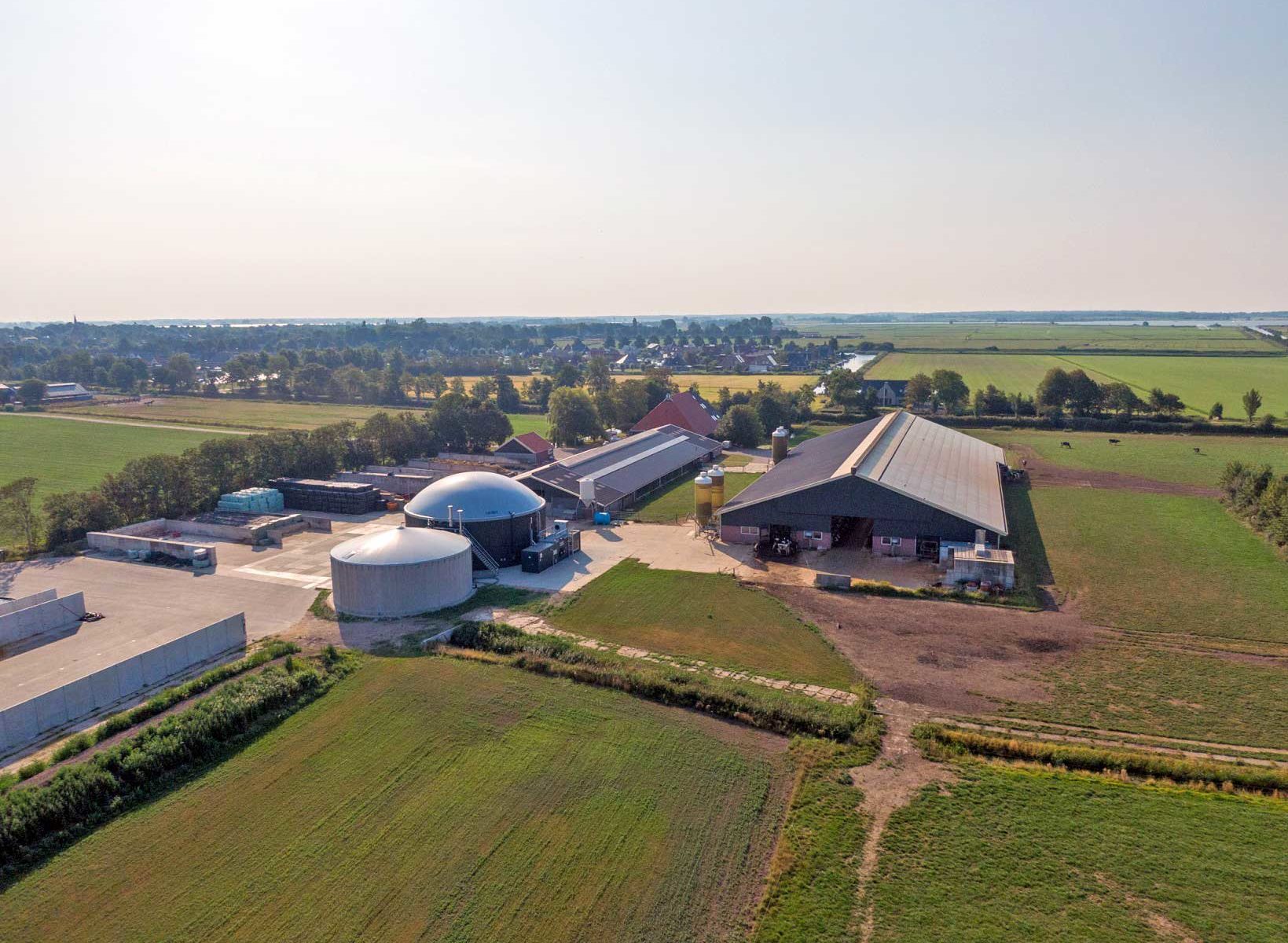Today (5 April 2022), the ReFerm consortium presents a plan that requires no more than 5% of the Dutch nitrogen budget: €1 billion to invest in future-proof technical modifications at 1,500 dairy farms until 2030. This will allow a substantial reduction of both nitrogen and methane emissions.
Local installations
The solution consists of available and proven technology: low-emission barn floors, combined with the fermentation of cattle manure in small-scale local installations that can produce 0.5 billion cubic metres of biomethane (natural gas quality) per year and convert ammonia from fermented manure into mineral concentrates. These are virtually odourless substitutes for artificial fertilisers, which also significantly reduce nitrogen emissions during fertilisation.
If 50% of the Dutch livestock farmers participate, 70% of the total desired nitrogen reduction in the Netherlands will already be achieved. Even more if the technology is realised in a targeted way at farmers near Natura 2000 areas. In addition, this technology can achieve around 107% of the CO2 reduction target in agriculture and around 25% of the Dutch biogas target for 2030.
Consortium
The ReFerm consortium is an initiative of sustainability consultancy Ekwadraat from Leeuwarden and Host Group from Enchede, one of the largest international bio-energy technology providers.
Douwe Faber, CEO of Ekwadraat: “Our approach offers a workable and cost-effective solution to the nitrogen problem, supports the development of climate-neutral agriculture, gives a huge boost to food security and sustainable energy production that are needed as basic values for our well-being – now more than ever before.”
“As far as we are concerned, the momentum is there: the technology is market-ready and we can make a major contribution to the vast energy and climate issues currently on the table,” says Sjaak Klein Gunnewiek of the HoSt Group.
Image: ReFerm



